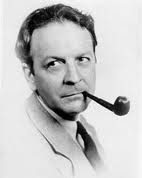
A Guest Post
by George Copeland
When Raymond Chandler wrote that poor writers are dishonest without knowing it, he had no reason to suspect there’d one day be a militantly tenacious army of them slinging their stuff with the ad hoc marketing arm of social media. Bad writing has always been with us, but what’s new in its current form is the rise of a concomitant philistine ethic, a seeming celebration of the act of writing itself, not of a more deliberate and circumspect writing culture in search of excellence for its own sake. It’s a touchy subject. Bring the problem up in a room of indies and you’ll get the hard stare of rough men sniffing out the double agent in their midst. Continue reading “Honesty and the Self-Publisher”



